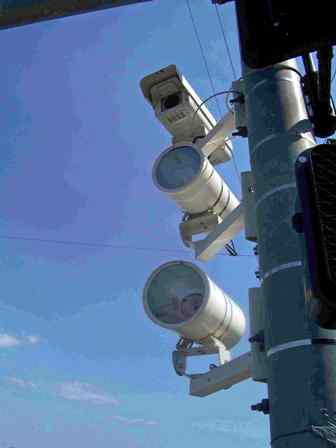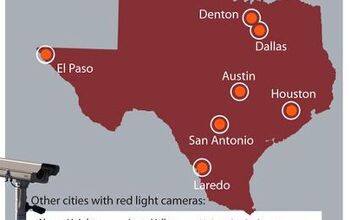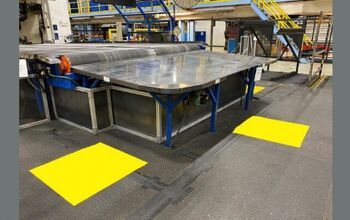Orlando's Red-Light Cameras to Repeat Dallas' Mistakes
Yesterday, we reported that Dallas, TX is having problems with its red-light camera revenues. Apparently, Orlando, Florida's town fathers don't read TTAC. WFTV reports that city commissioners have approved a contract to pay a Georgia company $500k a year to install and maintain red-light revenue raisers at ten different intersections. "We're really doing this as a means of public safety," Mayor Buddy Dyer insists. "And most of the statistics show many accidents are caused by running red lights." Really? I don't think so. Anyway, if it's all about the children, why does the deal hinge on whether or not cities will be allowed to issue tickets to those caught by the cameras? In fact, if the laws aren't changed, the cameras won't be installed. Perish the thought.
Glenn is a baby-boomer, born in 1954. Along with his wife, he makes his home in Connecticut. Employed in the public sector as an Information Tedchnology Specialist, Glenn has long been a car fan. Past rides have included heavy iron such as a 1967 GTO, to a V8 T-Bird. In between those high-horsepower cars, he's owned a pair of BMW 320i's. Now, with a daily commute of 40 miles, his concession to MPG dictates the ownership of a 2006 Honda Civic coupe which, while fun to drive, is a modest car for a pistonhead. As an avid reader, Glenn enjoys TTAC, along with many other auto-realated sites, and the occasional good book. As an avid electronic junkie, Glenn holds an Advanced Class amateur ("ham") radio license, and is into many things electronic. From a satellite radio and portable GPS unit in the cars, to a modest home theater system and radio-intercom in his home, if it's run by the movement of electrons, he's interested. :-)
More by Glenn Swanson


































Comments
Join the conversation
That's only partially true. We have plenty of intersections with no delays between the lights at all, around here. I mean none.. Most of the "important" intersections have .5 to 2 second gaps, but the smaller, less important ones almost switch to green before the red light kicks in - you have to be very careful around these lights. Of course, the 2 second gap at the other lights tends to let people think that running the red light is completely OK, so those end up being just as dangerous.
Look at www.motorists.com for a lot of studies that show red light cams cause accidents. A well engineered intersection has few red light runners. Shorten the yellows and watch the money roll in. If the revenues drop, the yellows magically shorten. You get the idea.
The National Motorists Association, whose website speedlaw mentions, operates under the guise of promoting the average motorist's best interests. It touts itself as a voice for the common man (and woman) against the arbitrary dictates of state and local government with regard to traffic laws and regulations. In reality, it is an anti-scientific organization that would like to take highway safety back to the dark ages of the 1950s when all we did was exhort drivers to "drive carefully." Didn't work then, won't work now. One technique the NMA uses is the "Big Lie." That is, they repeat an untruth over and over to the point that the average reader will believe it's true (like localities playing around with yellow light timing, nevermind the serious liability problems that could arise because of such "tinkering"). And unfortunately, the average enthusiast WANTS to believe this drivel.